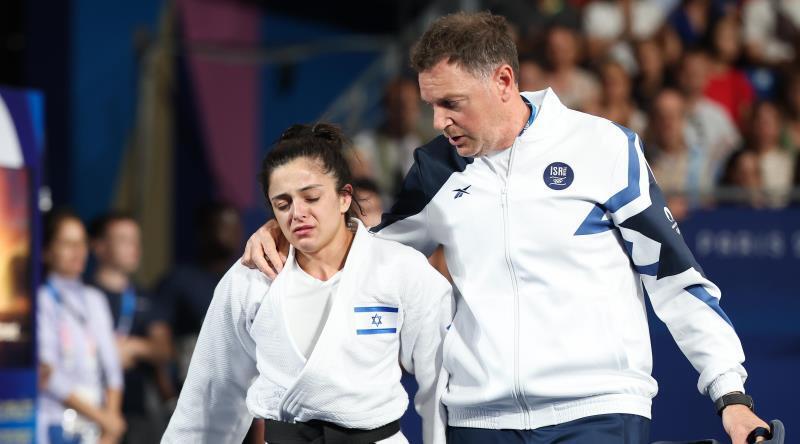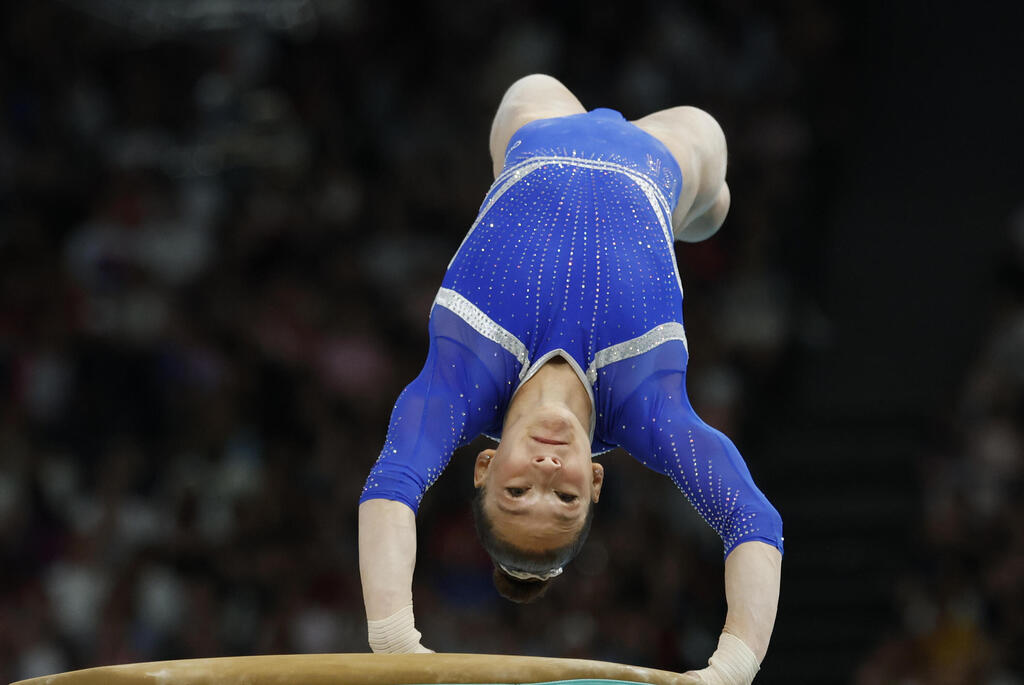Getting your Trinity Audio player ready...
When stripped of its broader meanings, any sport is essentially just people doing something you can’t do yourself. And this idea of a handful of experts, impressive as they are, is the basis of the entire job market. Manipulating a ball with your feet impressively? Jumping from one point to another? Walking nonchalantly on a thin beam? Impressive, but not much different from a person moving a refrigerator for someone who can’t carry a heavy appliance, or a carpenter crafting a fully equipped kitchen for someone without any technical skills.
Why is a gymnast more captivating than a heavyset mover? Our willingness to elevate athletes above other professionals, to see their personal excellence as something broader and collective, is what makes sports so special. This, combined with the element of competition. In sports, we win against someone who isn’t us. This projection is particularly relevant at the Olympics, where athletes compete in their own names but primarily under their national flags. And never more so than in these Olympics. At least not for Israel.
This isn’t the first time we can say there has never been an Olympics like this one. The tragedy of life in Israel always provides a sense of siege, which in turn translates into the illusion that sports are a band-aid for everything. Were the 1976 Montreal Games, four years after the Munich massacre, less significant than those occurring after the October 7 attacks? No, but there is a significant difference between Paris 2024 and the games nearly half a century ago: The realism of the medals. This time, we can really "take revenge."
One might wonder, quite justifiably, what kind of revenge is achieved through a victory in a more or less obscure sport in a fleeting competition. This psychology can also be accepted as a fact. Precisely because Israelis can’t currently feel good about themselves in truly important matters, they have to settle for synthetic substitutes.
You can't bring back hostages through the Olympics and, contrary to the nonsense spouted by the president about hostages gaining strength from hearing about a medal win, it’s likely that medal awarded for archery won’t interest them in the slightest. You also can't restore a sense of security on the northern border by advancing to the quarter-finals of a soccer tournament. But that's exactly it – because so many elementary things have suddenly become unattainable, these exceptional things are desperately needed.
We always need someone "from our side" to run a marathon faster than someone else, even though some of us can’t run a kilometer without gasping for breath; for someone to win a taekwondo medal even though we don’t know the rules and sometimes it just looks like “kicking”; for someone to hang on the rings and straighten their legs even though we don’t understand what they’re doing up there and feel like telling them, “Come down, you’re crazy, you might fall.”
There are no tools for comparison – we’ve never experienced the psychology of Estonians or Chinese during the Olympics – but it’s hard to believe that, elsewhere, an Olympic medal is regarded with the same reverence as in Israel. More than anything, what we want most is not to be less good than we once were, but that's already a bit difficult. In these Olympics, where Israeli identity competes against itself, we don’t stand a chance. So, we'll settle for what remains – being better than everyone else even if it’s only in sports.




